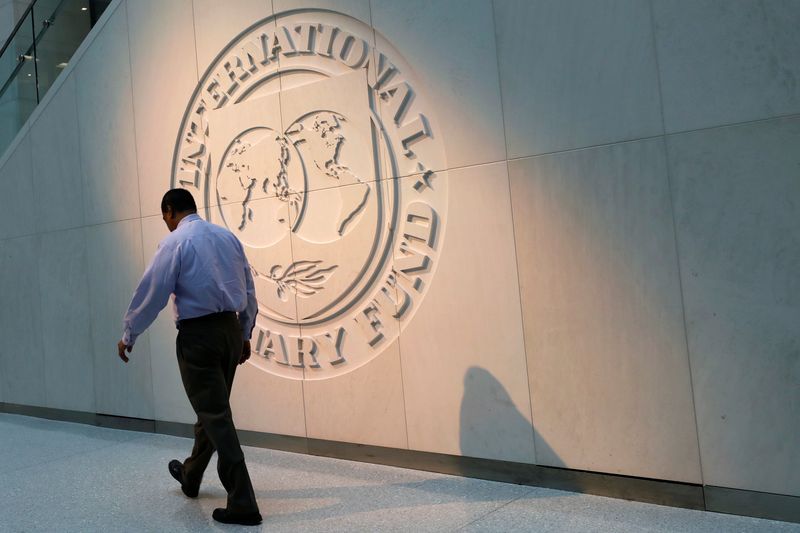By Andrea Shalal
WASHINGTON (Reuters) - The International Monetary Fund still favors a case-by-case approach to dealing with sovereign debt issues, but is closely monitoring developments to ensure it is prepared if a more systemic approach is needed, a top official said on Thursday.
IMF strategy chief Ceyla Pazarbasioglu said the global outlook called for "relatively higher and more volatile interest rates" that would not be conducive to emerging markets being able to reduce their high debt burdens.
Pazarbasioglu said there had not been major solvency problems in emerging markets or developing countries in recent months, but she remained concerned that record global public debt and high debt servicing costs were crowding out investment in education, infrastructure or climate resilience.
The IMF official said the Group of 20 common framework for debt restructuring had helped support countries that needed debt relief, but "much more" needed to be done, including quicker and more predictable relief reaching a broader set of countries.
Creation of the Global Sovereign Debt Roundtable, which also includes the private sector and the borrowing countries, marked another step forward, but some economists questioned whether a more systemic approach was needed.
For now, the IMF favored a case-by-case approach, she said, but added that piloting some other approaches would be very important going forward.
"So in our view, we are not yet there to need some sort of a systemic approach that was used in the past. But we are monitoring the developments very carefully to make sure that we are prepared in case such approaches would be necessary," she added.
Pazarbasioglu said the median external debt service burden of emerging market countries - a key indicator for assessing whether a country might be at risk of missing a debt payment - was now about 11% of revenues, compared to 8% a decade ago.
The number was far higher for low-income countries, which spent about 14% of revenues to service their debts, up from 6% in 2013, she said.

In a separate blog published this week, the IMF said the overall funding squeeze facing low-income countries should be monitored carefully, noting that they needed to refinance about $60 billion of external debt each year, three times the average seen in the decade through 2020.
Given climate change challenges, there was a "significant risk of a liquidity crunch" which could lead to a destabilizing debt crisis, they wrote.